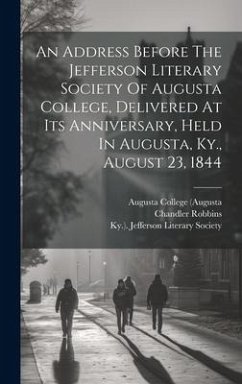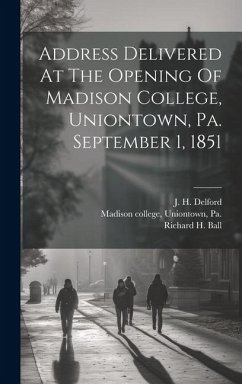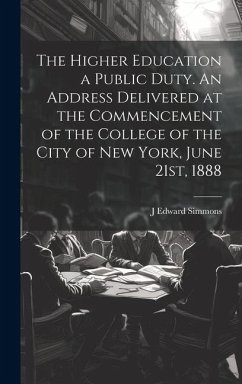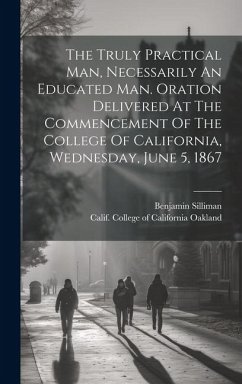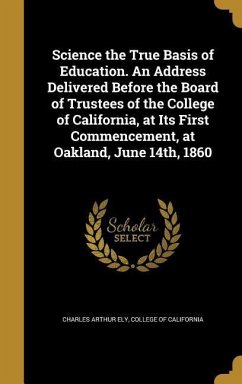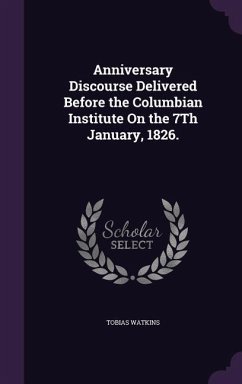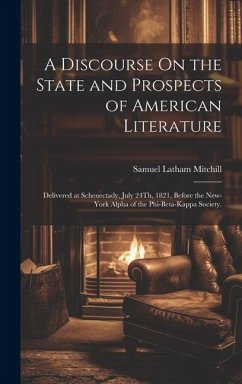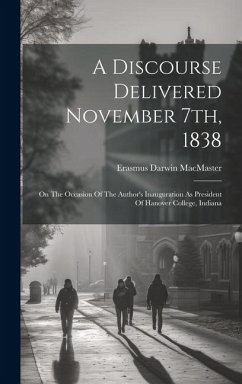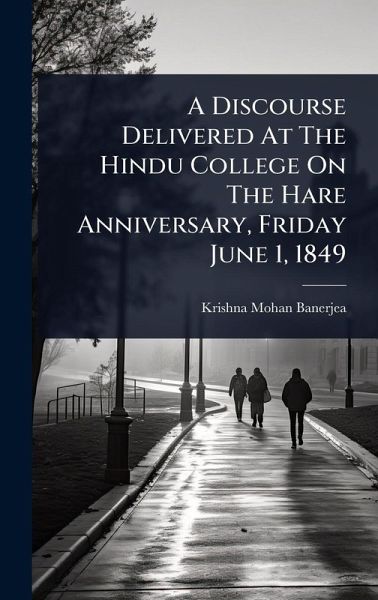
A Discourse Delivered At The Hindu College On The Hare Anniversary, Friday June 1, 1849
Versandkostenfrei!
Versandfertig in über 4 Wochen
25,99 €
inkl. MwSt.
Weitere Ausgaben:

PAYBACK Punkte
13 °P sammeln!
âA Discourse Delivered At The Hindu College On The Hare Anniversary, Friday June 1, 1849â presents a significant historical snapshot of educational and social reform efforts in 19th-century India. Delivered by Krishna Mohan Banerjea, this discourse likely celebrates the anniversary of David Hare, a Scottish philanthropist and educationist renowned for his contributions to the establishment of modern education in India, particularly through the Hindu College in Calcutta. Banerjea's address offers insights into the intellectual and social climate of the time, reflecting on the importance of ed...
âA Discourse Delivered At The Hindu College On The Hare Anniversary, Friday June 1, 1849â presents a significant historical snapshot of educational and social reform efforts in 19th-century India. Delivered by Krishna Mohan Banerjea, this discourse likely celebrates the anniversary of David Hare, a Scottish philanthropist and educationist renowned for his contributions to the establishment of modern education in India, particularly through the Hindu College in Calcutta. Banerjea's address offers insights into the intellectual and social climate of the time, reflecting on the importance of education in shaping Indian society and addressing prevailing social issues. The text will appeal to historians, scholars of Indian studies, and anyone interested in the evolution of educational institutions and reform movements in colonial India. It provides a valuable primary source for understanding the complex interplay between education, social change, and cultural identity during a pivotal period in Indian history. This work has been selected by scholars as being culturally important, and is part of the knowledge base of civilization as we know it. This work was reproduced from the original artifact, and remains as true to the original work as possible. Therefore, you will see the original copyright references, library stamps (as most of these works have been housed in our most important libraries around the world), and other notations in the work. This work is in the public domain in the United States of America, and possibly other nations. Within the United States, you may freely copy and distribute this work, as no entity (individual or corporate) has a copyright on the body of the work. As a reproduction of a historical artifact, this work may contain missing or blurred pages, poor pictures, errant marks, etc. Scholars believe, and we concur, that this work is important enough to be preserved, reproduced, and made generally available to the public. We appreciate your support of the preservation process, and thank you for being an important part of keeping this knowledge alive and relevant.



